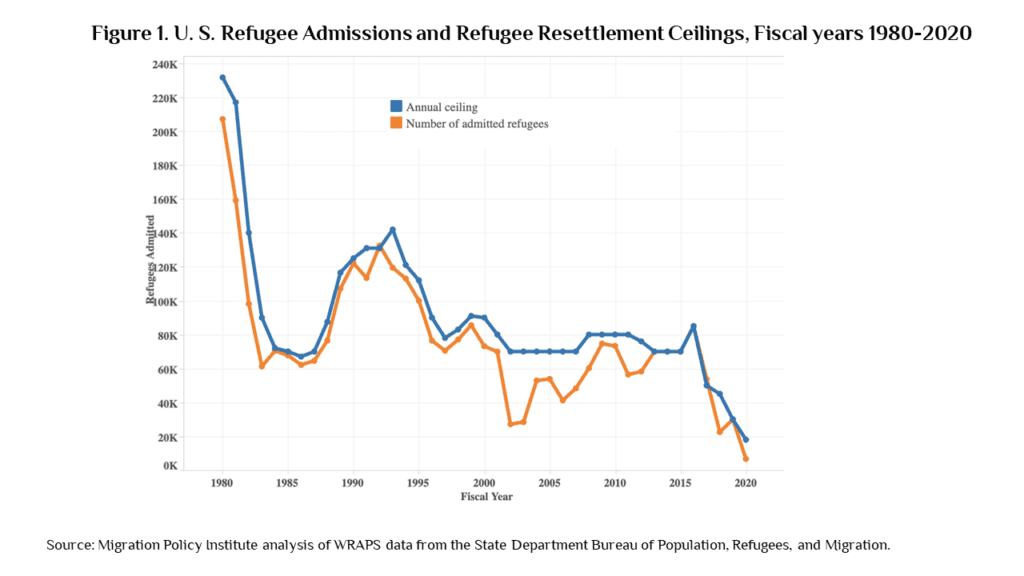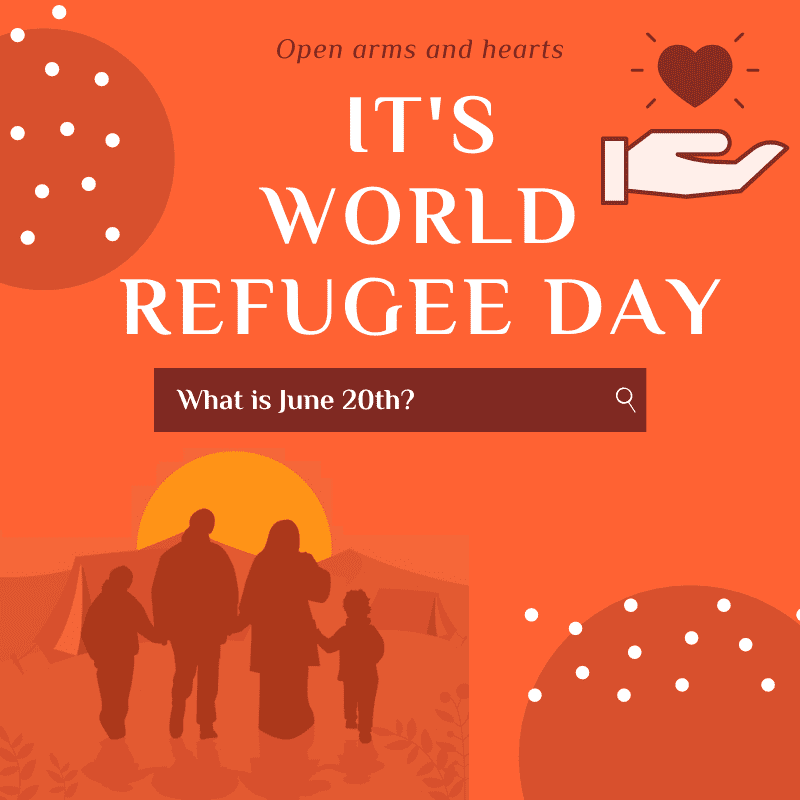June 20th is World Refugee Day—a day to raise awareness about providing protection for refugees. This year also marks the 40th anniversary of the Refugee Act of 1980, a bipartisan law signed by President Carter that created the process and procedures for resettlement, established a determination of annual refugee admissions, and required annual meetings between the President and Congress.
This law, which defined a refugee as a person with a “well-founded fear of persecution,” was especially important for the most vulnerable group of refugees—women, who are seen as culturally inferior. Women are more dependent on their male counterparts, receive less education, have less access to safe health services, and are at a higher risk for gender-based violence.
During times of crisis, such as COVID-19, gender-based violence (GBV) increases for women. Intimate partner violence is the most common form as refugee women are isolated at home with their abusers. Therefore, it’s important for resettlement agencies to provide extra resources and support for refugee women during this time.
Resettlement agencies help with daily tasks from finding housing to school enrollment. An important part of resettlement is integration into the community, which is now a challenge due to social distancing guidelines.
I asked Marsha Hirsch, executive director of Carolina Refugee Resettlement Agency (CRRA), how resettlement can happen safely during the pandemic. She informed me that some things must still be in person, but there are also many online resources. CRRA has funding to provide refugees with laptops for virtual ESL classes, virtual doctors’ appointments, and Switchboard/CORE, which provides cultural orientation materials and news updates in multiple languages.
As schools are closed during the pandemic, access to online education for refugee women is extremely important. Once refugee girls are removed from school, they are less likely to return or receive schooling from home in comparison to boys. In addition, refugee women who are updated with news are also more likely to be empowered as leaders.
Social distancing is also creating major challenges when it comes to finding work. Hirsch acknowledged that refugees would typically be employed in 2–3 months, but that the process has been much more difficult with COVID-19 and overall US employment rates plummeting.
Women play a major role in supporting their families. In fact, at least one in four refugee women are the main financial providers of their family. A lack of employment opportunities leads to a higher risk of sexual exploitation. On top of this, refugee women are also caregivers, and have more responsibility to take care of ill family members, putting them at higher risk of contracting the virus.
A lack of employment is an additional barrier because it’s often tied together with health insurance. While discussing this, Hirsch stated that the insurance of refugees depends on individual state’s Medicaid policies. Medicaid in North Carolina is more restrictive than other states since they have not passed extensions. Therefore, after a year, refugees must find their own option, typically employer-based insurance. This can be impossible with high employer-based insurance premiums.
To make matters worse, a Trump administration change to the public charge determinations penalizes immigrants who have utilized public benefits, such as Medicaid. It’s estimated that millions of eligible immigrants, such as refugees, will disenroll from Medicaid due to this. Hirsch informed me that CRRA makes it clear to refugees that they will not be penalized for using government benefits.
Sixty-one percent of maternal deaths in the world occur in states of crisis, such as the current pandemic. The first refugee woman to test positive for COVID-19 contracted it in a hospital during childbirth. Therefore, it’s important to provide pregnant refugee women, who often have limited health resources, with safe access to care. They shouldn’t have to worry about putting themselves at risk when seeking medical care.
To understand the effect of COVID-19 on refugees of different genders and races/ethnicities, disaggregated data is important. Resettlement agencies should keep track of this because all refugees cannot be grouped together—their individual identities affect their experiences. I asked Hirsch if CRRA or another organization was collecting this data. She answered that CRRA does not have responsibility for this.
Forty years after the Refugee Act of 1980 was passed, the number of refugees who are allowed to resettle in the US is at an all-time low (fig. 1). Hirsch stated that from 2014 to 2016, CRRA was resettling about 350 refugees per year, while in 2019, this number dropped to about 130 refugees. Under the Trump administration, CRRA is resettling less than 40% of the refugees than they were under Obama. Since October, CRRA has received approximately only 30 people so far.
Due to COVID-19, CRRA was recently on a limited arrival schedule with only emergency cases accepted. With the emergency cases, Hirsch states that CRRA is operating under normal procedures of resettlement, but with less physical contact. On March 17th, UNHCR announced a total suspension of refugee departures.
Every resettlement agency accepts individuals from different parts of the world. Hirsch tells me that CRRA has recently accepted many people from the Democratic Republic of the Congo. Many would have already been traveling to the US, but due to travel restrictions, they aren’t able to come in. CRRA hopes to resettle Congolese refugees later this summer if travel restrictions ease. COVID-19 has been unpredictable, and the wellbeing of refugees is dependent on traveling and resettling to another country.

Unfortunately, current US resettlement numbers are declining, regardless of the pandemic. Hirsch states, “We are way dialed down than where we were three or four years ago. COVID-19 adds another layer of reasons not to allow for resettlement. The Resettlement Program was already in dire numbers prior to the middle of March.”
It’s expected that the Trump administration will use the pandemic to extend travel restrictions. This could be detrimental for refugees, especially women, who are living in vulnerable conditions on top of COVID-19.
The outcome of the presidential election in November may change the refugee process for the following year. This link describes the policies of 2020 Presidential Candidates on immigration. Aside from voting, there are other ways Americans can help refugees during COVID-19, such as online tutoring. Click this link for more information on how you can help.
Khushi Basnyat, Research Assistant, will be a sophomore at the University of Richmond in the Fall.


